What pump are you using?
lindamarie
12 years ago
Related Stories
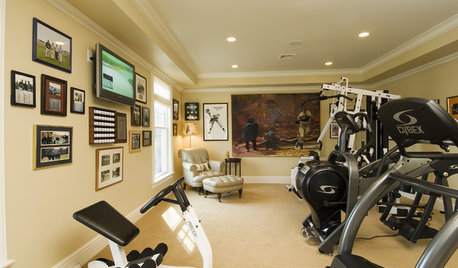
MORE ROOMSHip Home Gyms Get Hearts Pumping
Has your workout plan hit a plateau? Snap back into gear with these stylish home exercise rooms
Full Story
HOUZZ TOURSMy Houzz: Fitness and Color Pump Up a Dallas Home
A Texas mom brings her work home with a fitness studio amid rooms energized with color and charm
Full Story
DECORATING GUIDESHouzz Tour: Couple Pares Down and Pumps Up the Style
A big transition from a large suburban house to a 1,200-square-foot urban condo is eased by good design
Full Story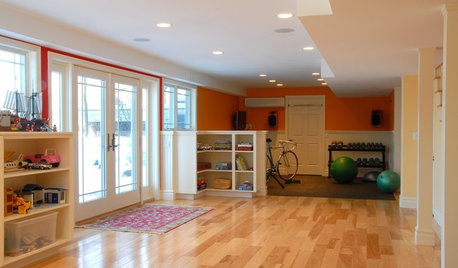
MORE ROOMS12 Colors to Pump Up Your Home Gym
Peeling gray walls not inspiring your workouts? Exercise your right to a motivating space with these stylish paint picks
Full Story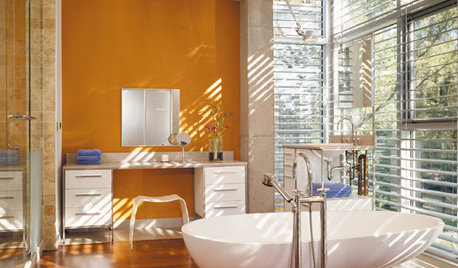
COLORBathed in Color: When to Use Bold Orange in the Bath
Orange you glad this warm and happy color can energize the place where you start your day?
Full Story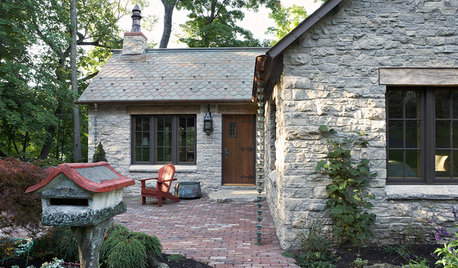
GREEN BUILDINGHouzz Call: What Have You Salvaged for Home Use?
If your floors, furniture, exterior materials or other home elements have a past life, we'd like to hear the story
Full Story
DECORATING GUIDESHow to Use Mirrors for More Light and Style
A well-placed mirror gives a room sparkle, surprise and a bright, open feeling. Here are 15 clever ideas to try in your own house
Full Story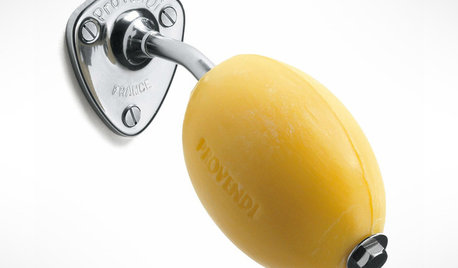
BATHROOM VANITIESBetter Places to Stash That Soap
Banish gloppy bars and flimsy pumps, and the only things you’ll need to clean are your hands
Full Story
GARDENING GUIDES5 Prairie Wildflowers That Can Heal Your Soil
Get free, organic soil fertilizer with nitrogen-pumping plants that draw pollinators too
Full Story
SAVING WATER11 Ways to Save Water at Home
Whether you live in a drought-stricken area or just want to help preserve a precious resource, here are things you can do to use less water
Full StorySponsored
Columbus Area's Luxury Design Build Firm | 17x Best of Houzz Winner!
More Discussions








coastal_concepts
poolguynj
Related Professionals
Lake Forest Swimming Pool Builders · League City Swimming Pool Builders · Palos Verdes Estates Swimming Pool Builders · Rocklin Swimming Pool Builders · Barrington Hills Landscape Architects & Landscape Designers · Suffern Landscape Architects & Landscape Designers · Bristol Landscape Contractors · Cornelius Landscape Contractors · Gloucester Landscape Contractors · Milford Landscape Contractors · Ansonia Landscape Contractors · Fishers Decks, Patios & Outdoor Enclosures · Highland Springs Decks, Patios & Outdoor Enclosures · Montgomery County Decks, Patios & Outdoor Enclosures · Palmetto Decks, Patios & Outdoor Enclosuresmas985
trhought
neilaz
domingos35
coastal_concepts
mas985
www.SwimmingPoolSteve.com